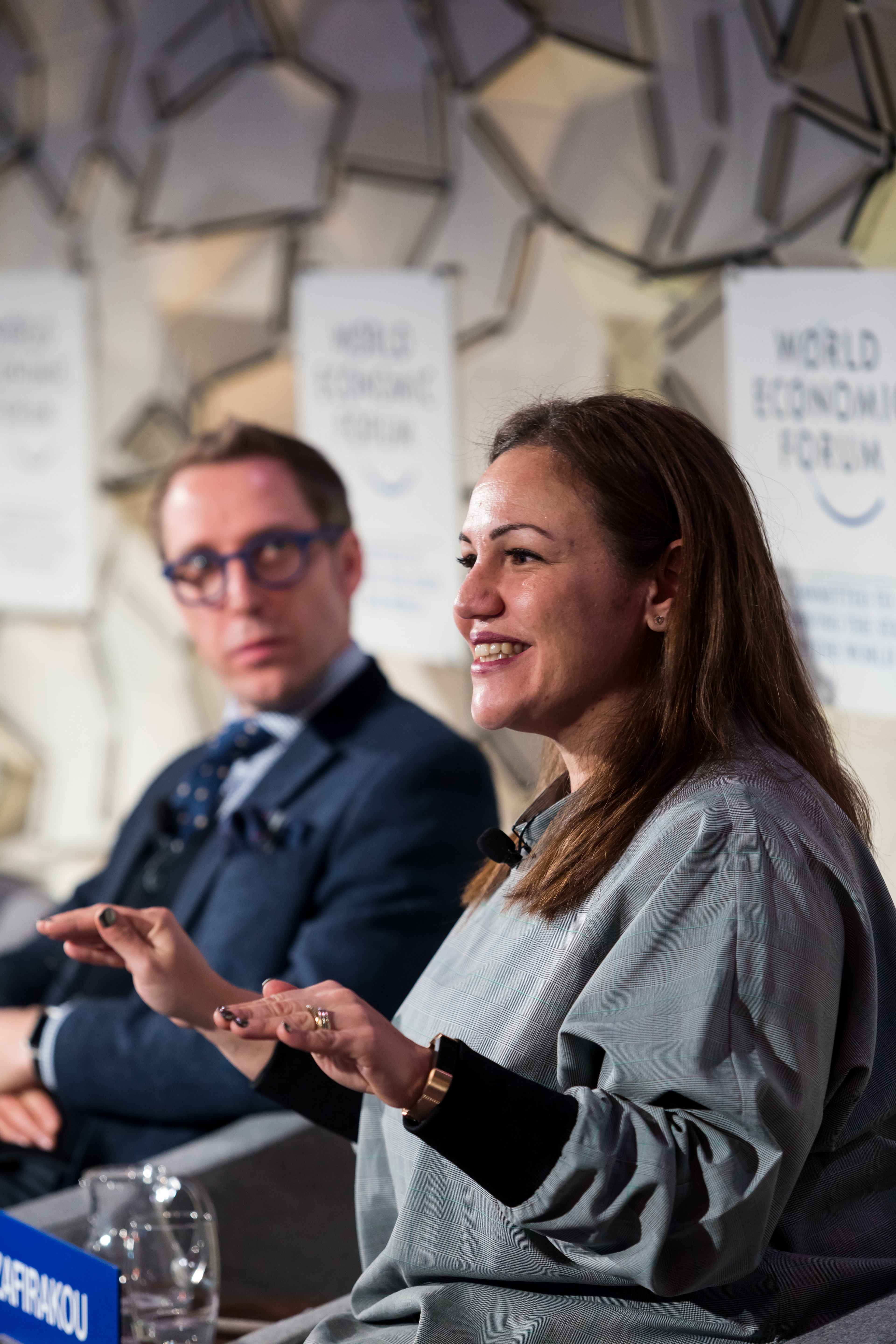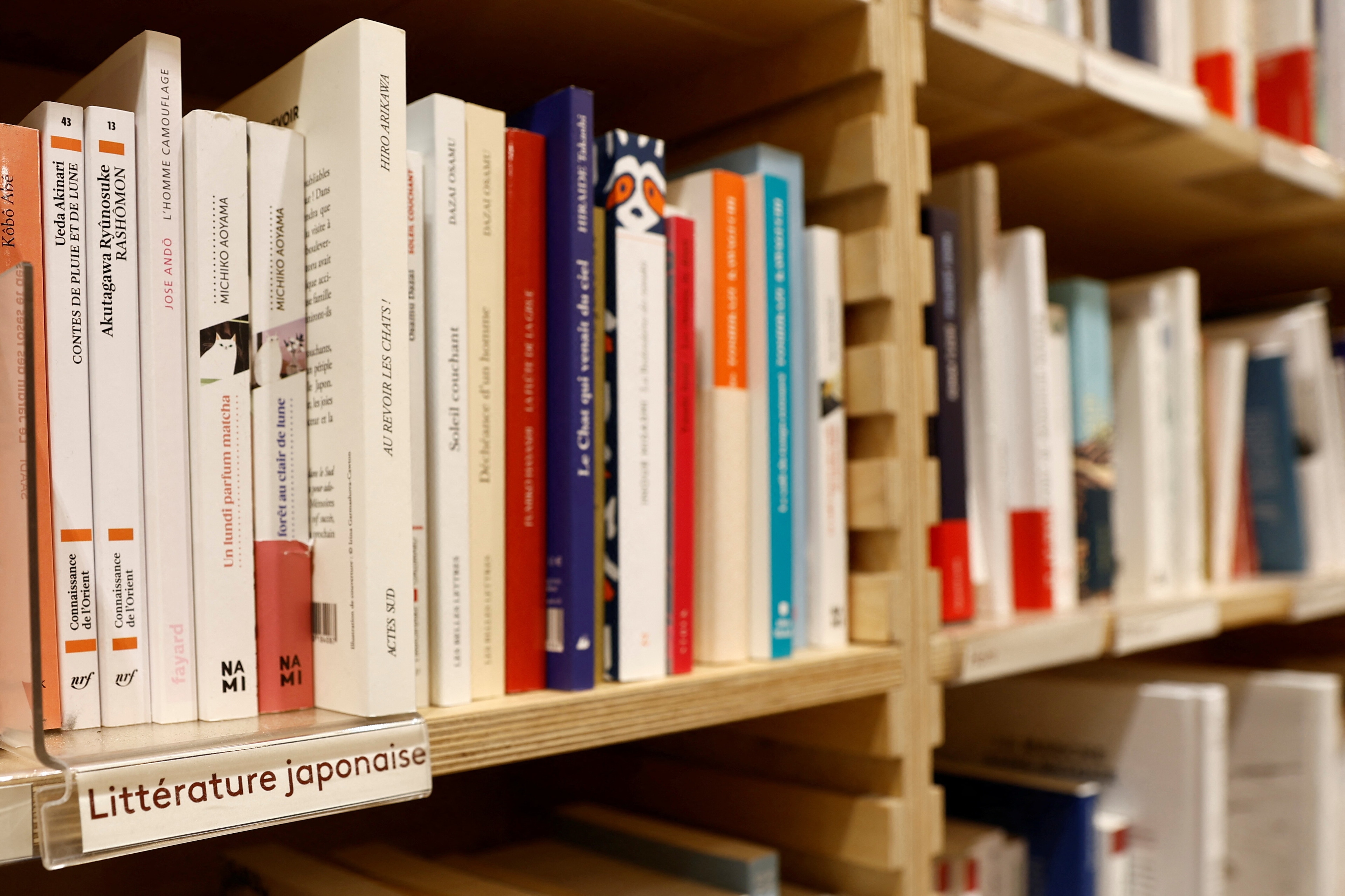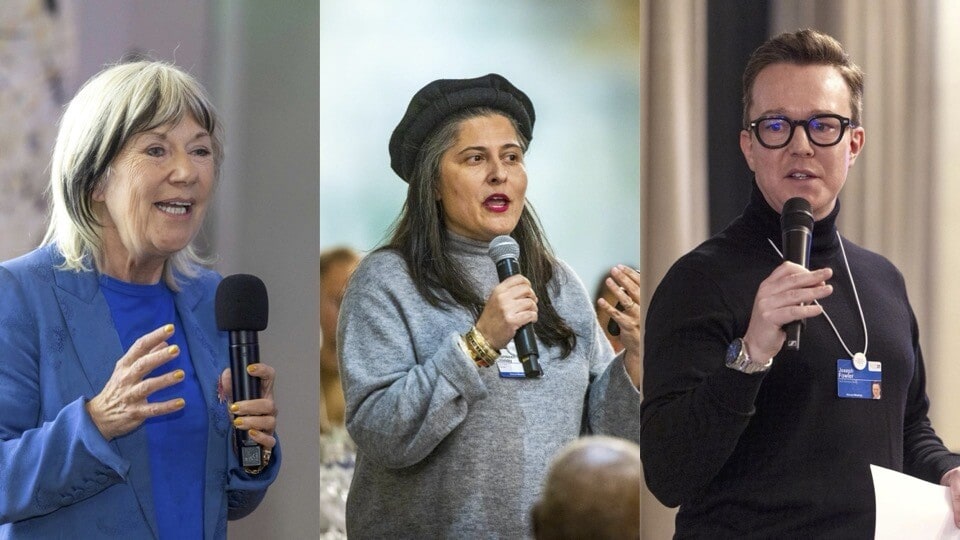How to stay creative and keep your family sane during lockdown – from one of the world’s best teachers

Thousands of classrooms all over the world remain empty, due t the COVID-19 pandemic. Image: REUTERS/Anushree Fadnavis
- The UN estimates that 1.25 billion children are currently at home as a result of the coronavirus lockdown.
- British art and textiles teacher Andria Zafirakou won the 2018 Global Teacher Prize and has two teenage daughters.
- Here she gives some practical tips – from giving your children time to transition to homeschooling, to creative ideas – for navigating staying at home together.
- This article is part of a series from the World Economic Forum's Cultural Leaders on building resilience in the pandemic.
In millions of homes across the globe this very minute, parents are juggling like never before as they struggle to teach their children while earning a living during the coronavirus lockdown.
As of 20 March, the UN estimates that school’s out for 1.25 billion children and young people, as 124 countries have closed pre-primary to higher-education institutions – impacting almost three-quarters of all enrolled learners.
With their normal weekday routines gone, many of those children will be finding it hard to suddenly have mum and dad as teachers – and many parents will be trying to control the urge not to scream at them.
If that sounds like you, take some comfort in the knowledge that even one of the world’s best teachers admits her own kids aren’t keen on being "taught" by her.

“Even teachers will say their hardest students are their own children,” says British teacher Andria Zafirakou, the 2018 winner of the Global Teacher Prize and a World Economic Forum cultural leader.
“It’s quite tough teaching your own kids because they won’t listen to you, and you have no tolerance or patience. So rest-assured, we’re with you!”
Before schools closed in the UK on 20 March, Zakirafou was teaching art and textiles in-person to her students at Alperton Community School in northwest London, where she’s also the Associate Deputy Headteacher. In addition, she runs Artists in Residence, which brings artists into schools to inspire children and young people to seek a career in creative and cultural industries.
Now she’s at home with her husband and setting work for her two teenage daughters – as well as setting remote work for her students, who range from ages 11 to 18 and come from diverse, often poor, backgrounds.
Here are her tips on how to stay creative and keep your family sane when you’re all at home together.
We’re all having to be more creative
I’m finding it really tough not going into school, because your classroom is your learning environment and your work environment. It’s hard not having that human contact with the children and picking up on things. And I can’t just go to the stock cupboard, so I have to think about what the students have at home, what access to materials they have, and try to create lessons based on that.
I know that not every household has got access to paints, so I’ve been doing collage and lots of drawing activities. I’m really mindful that I want them being creative and doing things away from the screen. I want them out in the garden, if they have one, to draw what’s there. So it’s about how I can get them to remain creative in their own environments.

Parents can encourage creativity by...
1. Asking questions: Creativity is all about questioning: How can I? Why should it? What would happen if? How can I make this, or how can I change this? It’s about making sure that children are always being asked those questions.
2. Keeping everything: Do not chuck anything away. Keep a bag with all the egg boxes and toilet rolls in a corner, because that’s going to be a mine of incredible craft-making materials.
3. Setting challenges: What kind of musical instruments can you make today from what’s in the bags over there?
4. Giving them time: The beauty is that the parents are in control of the time, for once. So you can give your child two hours to get on with a wonderful creative task, and they wouldn’t have that in school.
5. Finding online resources: Use sharing resources like Twinkl, BBC Bitesize. And then there are the entrepreneurs, like Joe Wicks doing kids’ exercise classes. There are also artists and designers sharing resources.
6. Being creative with space: Think about the space in your house. What can you change, what room could be theirs? What space is not utilized? What can you get rid of to make them a work area or for their equipment? That’s a very easy thing to fix.
7. Thinking outside the paintbox: Creativity is not just about arts and crafts, it’s also about the kitchen. What kind of lunch can they make for you while you’re working?
Get creative together
Art can be so powerful because it makes you escape for a little bit, it puts you in that mindfulness zone, and time passes so quickly. You can actually reflect and say, ‘I did that and it looks good’. As adults, if we are doing this ourselves, then we are showing good habits to our children.
So take time out of your busy, strange lives at the moment, by doing something like cooking, crochet or colouring in with your children. That’s a fantastic thing to be doing together, and it will go such a long way.
Don’t worry about your children falling behind
We’ve really got to be kind to each other: we are in a huge transition and it’s extraordinarily difficult. I can sense the anxiety parents might have about children falling behind, but just make sure they do a little bit, often, so that they are still engaged in the daily routine of learning. And be kind to yourself: even if your child does not complete a worksheet, and you’ve had a really bad day with them, that’s OK. It’s not the end of the world.
The one really positive thing that will come out of this is, I’m hoping our young people can be more independent in choosing when and what to learn. If we create children that love learning, they will automatically be researching and trying to find new things to occupy their time with and to be inspired by.
Prepare younger ones for going back
The young people that we really need to work with are 7- to 14-year-olds. We’ve got to be quite careful to keep them inspired and interested – and prepare them for returning to school. A friend of mine has a child with ADHD. She’s worried her child may not want to go back to school, because being at home is quite comforting.
So when we eventually open up the schools, every school has got to be very careful in how they prepare children to come back. They’ll need to think about how every child has been affected by this.
Teach them life skills, too
The most important thing I’ve learned, which surprised me, is that now is a really good time to teach children things you want to be done. Not all lessons need to be academic – they can be life lessons we want our children to learn as well. Even how they should fold their clothes, mop up or vacuum. Take an hour out and show them how you want them to do it. Usually, life is very fast, and we have no time for this type of teaching. But they are invaluable skills.
Carve out family time
In the evening, we have family time. So from 7.30 p.m. onwards, everyone’s devices go away, and we have a very fiery game of UNO or watch something appropriate on Netflix. Every household with children can now guarantee there’s going to be family time.
Let them chat to friends
It’s really important for the children to communicate with their friends. Parents can set up Zoom talks with their children’s friends. Not every day, but during the week, there should be some way they’re connected with somebody else that’s not you, and not another adult.
Try and limit screen time
Lots of parents have contacted us to say they’re worried about children sitting in front of the computer for five hours a day. As a parent, I have printed out lots of worksheets, because young children like to work in their school books. So put parameters in place and try to manage how often they use their online learning resources.
This is where Alexa and all those gizmos are brilliant. Put a timer on for 15 minutes and then say, ‘You are doing those questions in 15 minutes’. Help them with time management. And let’s get them reading books, drawing on toilet rolls, cooking, in the garden building things (if possible) – because they can’t be the generation that’s in front of screens learning, otherwise it will have a huge effect on them.
What is the World Economic Forum doing about the coronavirus outbreak?
Share the responsibility
We need to jointly plan and give them that sense of responsibility. It’s quite powerful for them to take control of what they’d like to do. And if that’s being in their room drawing, then give them that time, make them exhausted from doing that, because they will get bored very soon. And when they want to do other things, that’s where, as a parent, you’ve already got all these resources and ideas ready to go.
Try not to lose it
There are going to be interesting, diverse scenarios taking place in homes at the moment. Don’t get frazzled, because teachers don’t lose it – they are quite calm. And just remember that your children are transitioning as well. We need to use lots of negotiation and give and take. Every parent is concerned because we’re taking up a new role here, which we’ve never had to do before. But it’s not going to be permanent. There’s no quick fix, and you’re not a failure, because this is brand new to us all. The positive thing is, we’re going to get to know our children more.
Don't miss any update on this topic
Create a free account and access your personalized content collection with our latest publications and analyses.
License and Republishing
World Economic Forum articles may be republished in accordance with the Creative Commons Attribution-NonCommercial-NoDerivatives 4.0 International Public License, and in accordance with our Terms of Use.
The views expressed in this article are those of the author alone and not the World Economic Forum.
Stay up to date:
COVID-19
Forum Stories newsletter
Bringing you weekly curated insights and analysis on the global issues that matter.
More on Arts and CultureSee all
Elena Raevskikh and Giovanna Di Mauro
October 22, 2025








